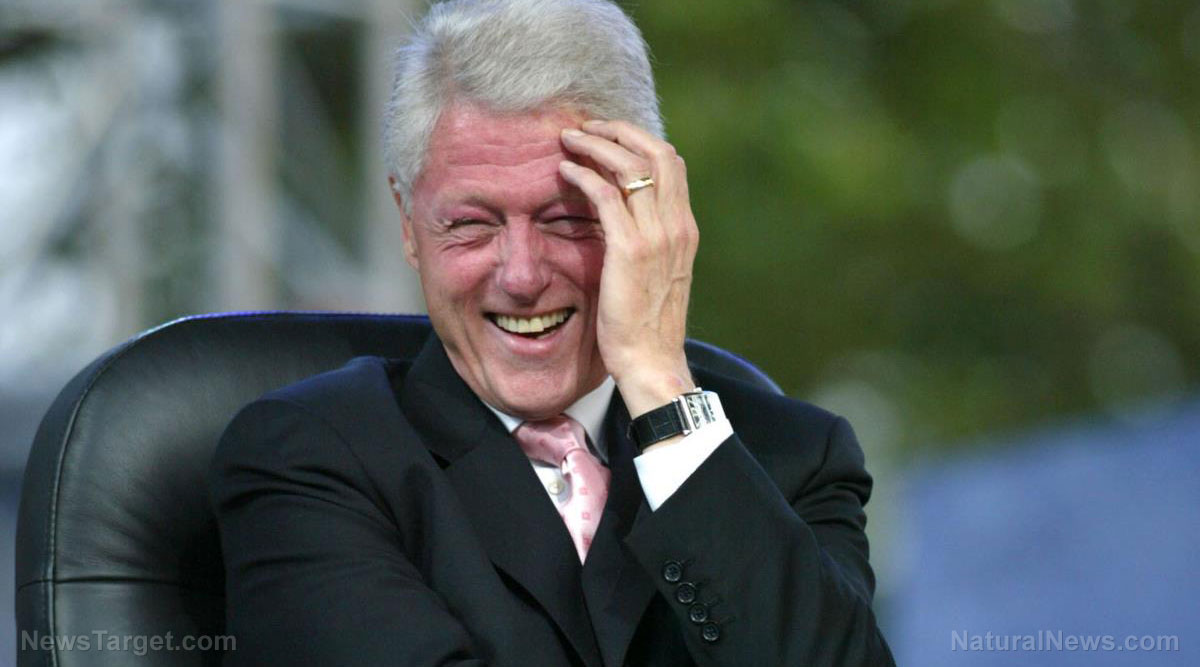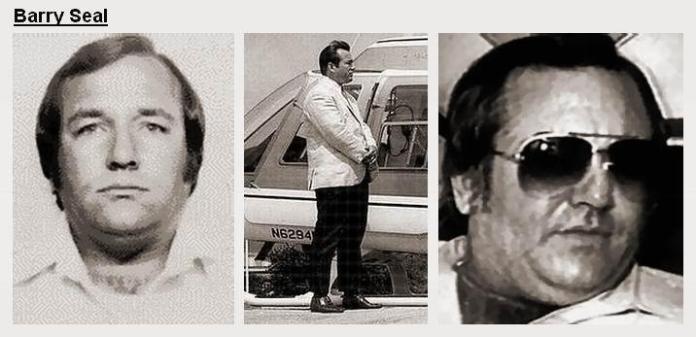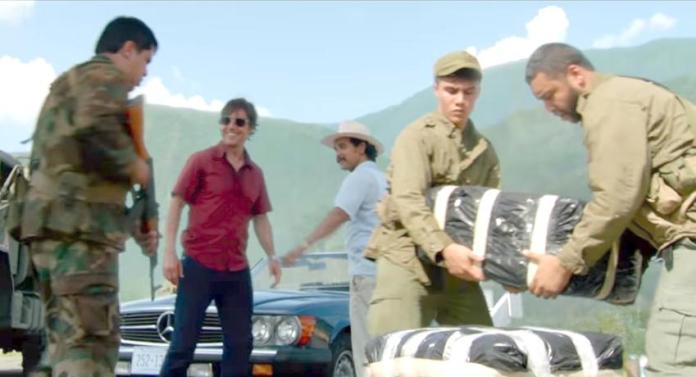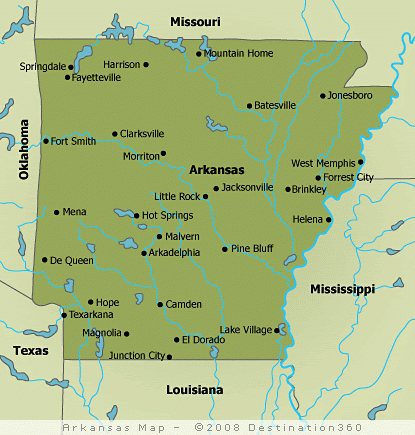
The plane of Eugene Hasenfus–which exposed the Contra operation after being shot down over Honduras—had flown out of Mena and belonged to Seal.[14]
Clinton was allegedly recruited by the Agency in the 1960s and helped cover up for drug-and gun-running operations to the Nicaraguan Contras out of Mena, Arkansas, in the 1980s when he was Governor of Arkansas. The CIA in turn appears to have helped Clinton in his rise to power.
(Article by Jeremy Kuzmarov republished from CovertActionMagazine.com)
[This article follows in our series on the history of the CIA and its criminal activities around the world. It is also kicks off our “Clinton crime” week as we will follow up with an article on the July 1993 murder of White House Special Counsel Vince Foster, whom Clinton had brought to Washington from Arkansas where he had served as legal counsel with Hillary in the Rose Law Firm. Bill was recently in the news because he was hospitalized and appears to be in poor health. The mainstream media continues to give him and Hillary the kid gloves treatment, failing to explore the dark side of an American power couple that embodies the old adage “best is worst.”—Editors]
The 2017 Hollywood blockbuster American Made, starring Tom Cruise, spotlighted the escapades of Barry Seal, a legendary drug pilot with a CIA background who smuggled guns and drugs into Nicaragua out of Mena, Arkansas, as part of the 1980s Contra War.
In one scene that the filmmakers decided to cut, a young Bill Clinton, the Governor of Arkansas, gets a lap dance at a strip club at the moment when Seal hatches a plan to enlist Clinton in the CIA-backed drug and gun running scheme. Left in, however, was a scene in which Clinton helps facilitate Seal’s release from jail so he could begin informing on the Drug Enforcement Administration (DEA).
[caption id="" align="alignnone" width="595"] [Source: imdb.com][/caption]Hollywood may be known for embellishment, but newly declassified documents show that Arkansas state officials were briefed about a joint CIA-Defense Department operation in Mena to assist the Contras, which Governor Clinton had to have known about. Clinton also, according to numerous whistleblower accounts, helped block investigation into the arms- and drug-running schemes.
[Source: imdb.com][/caption]Hollywood may be known for embellishment, but newly declassified documents show that Arkansas state officials were briefed about a joint CIA-Defense Department operation in Mena to assist the Contras, which Governor Clinton had to have known about. Clinton also, according to numerous whistleblower accounts, helped block investigation into the arms- and drug-running schemes.
American Made director Doug Liman stated, “we knew that somehow Barry was operating with immunity. The CIA was operating with immunity in Arkansas. So there had to have been some involvement of the governor’s office. There is a prosecutor in Arkansas who was told to back off. And so we combined that with the fact that the CIA was for sure operating in Arkansas and Clinton was the governor, to condense it down into one specific moment.”
Clinton’s ties to the CIA appear to go back to the 1960s. He was reportedly recruited while studying at Oxford University in the late 1960s as a Rhodes Scholar, or while an undergraduate at Georgetown University—a huge CIA recruiting center. He then reportedly served as an informant on the anti-war movement in England as part of the CIA’s Operation Chaos, giving the CIA the names of fellow protesters and the sources of the movement’s funding.
The CIA is further suspected of funding a March 1969 trip Clinton took to Moscow where he was allegedly part of a mission to smuggle out the memoir of ex-Soviet Premier Nikita Khrushchev, which was subsequently translated into sixteen languages.
This was a coup for the CIA since Khrushchev had denounced the crimes of Stalin and presented a negative view of the Soviet Union.
An Asset of the Three Bad Words
In June 1966, newly appointed CIA Director Richard Helms expanded operations to collect intelligence on college and university campus protests against the Vietnam War. Project Resistance placed CIA recruiters on college campuses who would recruit students to infiltrate protest groups.
[caption id="" align="alignnone" width="595"] Richard Helms in the White House Cabinet Room in March 1968. [Source: wikipedia.org][/caption]At Oxford’s Balliol College, where Clinton studied, the CIA recruiter may have been Richard G. Stearns. A graduate of Stanford and Harvard law, he was a committed anti-communist who was Vice President for International Affairs of the National Student Association (NSA), which Ramparts magazine showed to have received CIA funds.[1]v
Richard Helms in the White House Cabinet Room in March 1968. [Source: wikipedia.org][/caption]At Oxford’s Balliol College, where Clinton studied, the CIA recruiter may have been Richard G. Stearns. A graduate of Stanford and Harvard law, he was a committed anti-communist who was Vice President for International Affairs of the National Student Association (NSA), which Ramparts magazine showed to have received CIA funds.[1]v
[caption id="" align="alignnone" width="591"] Richard Stearns at the headquarters of the National Student Association (NSA) in 1967, the year that Ramparts magazine revealed that the NSA had received CIA funds. [Source: ebay.com][/caption]Clinton and Stearns were very close. A series of letters between them shows that Clinton sought Stearns’s assistance in evading the Vietnam War draft. In exchange, Stearns allegedly helped provide funding for Clinton to travel to Moscow and Eastern Europe. Later, he helped set up Clinton as the head of George McGovern’s political campaign in Texas—where Clinton made key contacts that helped him rise to power.[2]
Richard Stearns at the headquarters of the National Student Association (NSA) in 1967, the year that Ramparts magazine revealed that the NSA had received CIA funds. [Source: ebay.com][/caption]Clinton and Stearns were very close. A series of letters between them shows that Clinton sought Stearns’s assistance in evading the Vietnam War draft. In exchange, Stearns allegedly helped provide funding for Clinton to travel to Moscow and Eastern Europe. Later, he helped set up Clinton as the head of George McGovern’s political campaign in Texas—where Clinton made key contacts that helped him rise to power.[2]
[caption id="" align="alignnone" width="509"] 1967 Ramparts issue with exposé of National Student Association’s operation as a CIA front. [Source: beatbooks.com][/caption][caption id="" align="alignnone" width="597"]
1967 Ramparts issue with exposé of National Student Association’s operation as a CIA front. [Source: beatbooks.com][/caption][caption id="" align="alignnone" width="597"] Bill Clinton with George S. McGovern during 1972 election campaign. His selection as a key organizer in Texas—providing young Bill with key contacts that would help propel his career—may have been a reward for his service to the Agency in smuggling Nikita Khrushchev’s memoirs out of Moscow and serving as an informant in the anti-war movement at Oxford under Operation Chaos. [Source: monolithic.wordpress.com][/caption]Clinton’s Oxford roommate, Nelson Strobridge “Strobe” Talbott III, was attacked by Moscow newspapers as a “young sapling of the CIA” after he published a translation of Nikita Khrushchev’s memoir while working for Time magazine.
Bill Clinton with George S. McGovern during 1972 election campaign. His selection as a key organizer in Texas—providing young Bill with key contacts that would help propel his career—may have been a reward for his service to the Agency in smuggling Nikita Khrushchev’s memoirs out of Moscow and serving as an informant in the anti-war movement at Oxford under Operation Chaos. [Source: monolithic.wordpress.com][/caption]Clinton’s Oxford roommate, Nelson Strobridge “Strobe” Talbott III, was attacked by Moscow newspapers as a “young sapling of the CIA” after he published a translation of Nikita Khrushchev’s memoir while working for Time magazine.
Talbott had come from an upper-class family in Shaker Heights, Ohio, studied Russian and wrote a thesis at Yale—a haven for CIA recruitment where he was part of the Skull and Bones secret society—on Fyodor Tyutchev, a 19th century Russian poet and diplomat. Later, from his perch as head of the Brookings Institute, he played a key role in the Russia-Gate scandal by disseminating the Steele dossier, which spread misinformation helping to trigger nation-wide paranoid and hysterical Russophobia and neo-McCarthyism. [3]
[caption id="" align="alignnone" width="598"] Clinton, center, with his Oxford roommates Strobe Talbott, left, and Frank Aller who committed suicide after refusing to register for the Vietnam War draft. [Source: adst.org][/caption][caption id="" align="alignnone" width="599"]
Clinton, center, with his Oxford roommates Strobe Talbott, left, and Frank Aller who committed suicide after refusing to register for the Vietnam War draft. [Source: adst.org][/caption][caption id="" align="alignnone" width="599"] [Source: amazon.com][/caption]Talbott’s great-uncle, Harold E. Talbott, Jr., as Secretary of the Air Force from 1953 to 1955, had given away the Air Force’s authority to the CIA for overhead reconnaissance and worked with the CIA to promote development of the famed U-2 spy plane.[4]
[Source: amazon.com][/caption]Talbott’s great-uncle, Harold E. Talbott, Jr., as Secretary of the Air Force from 1953 to 1955, had given away the Air Force’s authority to the CIA for overhead reconnaissance and worked with the CIA to promote development of the famed U-2 spy plane.[4]
[caption id="" align="alignnone" width="600"] Harold E. Talbott, Jr. [Source: wikipedia.org][/caption]Talbott’s wife, Brooke Shearer, and brother-in-law, Cody Shearer, who was also involved in promoting Russia-Gate, meanwhile became part of Bill and Hillary Clinton’s “secret spy network.”[5]
Harold E. Talbott, Jr. [Source: wikipedia.org][/caption]Talbott’s wife, Brooke Shearer, and brother-in-law, Cody Shearer, who was also involved in promoting Russia-Gate, meanwhile became part of Bill and Hillary Clinton’s “secret spy network.”[5]
[caption id="" align="alignnone" width="346"] Strobe Talbott as Deputy Secretary of State under Clinton. [Source: wikipedia.org][/caption]As President Clinton’s top point man for Russia in the 1990s, Strobe oversaw “shock therapy,” or rapid privatization programs, that resulted in the sell-off of Russian state assets at pennies to the dollar to cronies of President Boris Yeltsin.[6]
Strobe Talbott as Deputy Secretary of State under Clinton. [Source: wikipedia.org][/caption]As President Clinton’s top point man for Russia in the 1990s, Strobe oversaw “shock therapy,” or rapid privatization programs, that resulted in the sell-off of Russian state assets at pennies to the dollar to cronies of President Boris Yeltsin.[6]
The question lingers as to whether it was coincidence that Talbott became Clinton’s roommate or whether Talbott was a liaison to the Agency whose purpose was to recruit young Clinton, who was considered even at the time to have great future potential?


Whistleblower Stew Webb believes that Clinton was already recruited as an Agency asset under Project Resistance at Georgetown University where he studied as an undergraduate and that he never actually received the Rhodes scholarship—this was merely a cover.
[caption id="" align="alignnone" width="599"] Bill Clinton with other Rhodes scholars, 1968. [Source: independent.co.uk][/caption]Clinton’s favorite professor at Georgetown was Carroll Quigley, a Defense Department consultant and author of Tragedy & Hope: A History of the World in Our Time (1966), which traced the power of a small Anglo-Saxon banking elite and how they effectively ruled the world.[7] Quigley wrote that “the two parties should be almost identical, so that the American people can ‘throw the rascals out’ at any election without leading to any profound or extensive shifts in policy. The policies that are vital and necessary for America are no longer subjects of significant disagreement, but are disputable only in details of procedure, priority, or method.”
Bill Clinton with other Rhodes scholars, 1968. [Source: independent.co.uk][/caption]Clinton’s favorite professor at Georgetown was Carroll Quigley, a Defense Department consultant and author of Tragedy & Hope: A History of the World in Our Time (1966), which traced the power of a small Anglo-Saxon banking elite and how they effectively ruled the world.[7] Quigley wrote that “the two parties should be almost identical, so that the American people can ‘throw the rascals out’ at any election without leading to any profound or extensive shifts in policy. The policies that are vital and necessary for America are no longer subjects of significant disagreement, but are disputable only in details of procedure, priority, or method.”
Clinton received one of only two A’s given by Quigley in the course and later quoted Quigley in his acceptance speech at the Democratic National Convention in 1992.[8]
[caption id="" align="alignnone" width="590"] Carroll Quigley teaching a course at Georgetown. [Source: goodreads.com].[/caption][caption id="" align="alignnone" width="277"]
Carroll Quigley teaching a course at Georgetown. [Source: goodreads.com].[/caption][caption id="" align="alignnone" width="277"] [Source: carrollquigley.net][/caption][caption id="" align="alignnone" width="596"]
[Source: carrollquigley.net][/caption][caption id="" align="alignnone" width="596"] Bill and Hillary Clinton at Yale Law School. [Source: businessinsider.com][/caption]Washington insider Jack Wheeler related, in his 1988 essay “How the Clintons Will Undo McCain,” how his friend Cord Meyer, Jr., the CIA’s Assistant Deputy Director of Plans from 1967 to 1973 and later London station chief, told him about Clinton’s past.
Bill and Hillary Clinton at Yale Law School. [Source: businessinsider.com][/caption]Washington insider Jack Wheeler related, in his 1988 essay “How the Clintons Will Undo McCain,” how his friend Cord Meyer, Jr., the CIA’s Assistant Deputy Director of Plans from 1967 to 1973 and later London station chief, told him about Clinton’s past.
He wrote: “Back in the 1990s, years after he retired, if Cord drank a little too much scotch he would laugh derisively at those conspiracists who accused Bill Clinton of being connected with the KGB. They all darkly point to Bill’s participation in anti-war peace conferences in Stockholm and Oslo and his trip to Leningrad, Moscow, and Prague while he was at Oxford. ‘Who could have paid for this,’ they ask, ‘it had to be KGB?’” Cord would shake his head. “What rot—we paid for it. We recruited Bill the first week he was at Oxford. Bill’s been an asset of the Three Bad Words ever since.”[9]
Corroborated by at least two other CIA officers, Meyer’s admission helps put into context many of Clinton’s actions as Governor of Arkansas and President of the United States.
Mr. Casey’s Fair-Haired Boy: Covering Up the Crimes of Mena
The 1992 presidential election was unique in that both major party candidates were caught up in the Iran-Contra scandal. George H.W. Bush as Vice President under Ronald Reagan had played a key role in the illicit shipment of arms to the Nicaraguan Contras—a counter-revolutionary army funded by the CIA that was seeking to overthrow the left-wing Sandinista government—as declassified government records have revealed.
[caption id="" align="alignnone" width="600"] Bill Clinton and George H. W. Bush at 1992 presidential debate. Both candidates had deep ties to the CIA. [Source: bustle.com][/caption]Bill Clinton might have used this against Bush in the campaign, except that he was also caught up in the scandal. Many arms shipments to the Contras were carried out from Arkansas’s soil during his governorship; specifically, from the Mena Intermountain Municipal Airport in southwestern Arkansas’s Ouachita mountains, “an outlaw’s paradise, home to generations of moonshiners and red-dirt marijuana farmers,”[10] which happened to be in the congressional district of John Hammerschmidt (1967-1993), George H.W. Bush’s former campaign manager (1976 and 1980).
Bill Clinton and George H. W. Bush at 1992 presidential debate. Both candidates had deep ties to the CIA. [Source: bustle.com][/caption]Bill Clinton might have used this against Bush in the campaign, except that he was also caught up in the scandal. Many arms shipments to the Contras were carried out from Arkansas’s soil during his governorship; specifically, from the Mena Intermountain Municipal Airport in southwestern Arkansas’s Ouachita mountains, “an outlaw’s paradise, home to generations of moonshiners and red-dirt marijuana farmers,”[10] which happened to be in the congressional district of John Hammerschmidt (1967-1993), George H.W. Bush’s former campaign manager (1976 and 1980).
Mark Swaney, head of the Arkansas Committee, which campaigned to have the Mena scandal investigated, concluded that Clinton at a minimum “knew all along about Mena,” and it is “possible and even highly probable, based on a mountain of circumstantial evidence, that he was directly involved.”[11]
This involvement would have been through the Arkansas Development Finance Authority (ADFA), the state’s chief economic development agency, established under Clinton, which provided bonds to stimulate business in the state.
According to whistleblower Larry Nichols, the ADFA was used as a vehicle to launder CIA and drug money from flights departing from the Mena airport.[12] Though branded by Clinton’s defenders as a “Clinton crazy”[13]—obsessed with dethroning a liberal icon—Nichols was in a position to know this. Not only did the Vietnam vet serve as marketing director for the ADFA, but he had also worked as an intelligence analyst in Honduras for the Contras, which is what first put him in contact with Clinton and led to his hiring by the ADFA.


Back in the 1970s, the Mena airport had been used to train guerrillas who were being sent on clandestine missions backed by the CIA in Africa. By the early 1980s, Mena had become a hub for gun-running operations to the Contras, Operation Centaur Rose, carried out in violation of the 1982, 1983 and 1984 Boland amendment aiming to limit U.S. government assistance to the Contras.

The plane of Eugene Hasenfus–which exposed the Contra operation after being shot down over Honduras—had flown out of Mena and belonged to Seal.[14]

Seal retrofitted his planes at a hangar at the Mena airport, and paid cash to local merchants for guns that he flew to the Contras, including 250 automatic pistols with silencers, that was a special order of the CIA.
A corpulent man with ties to New Orleans mob boss Carlos Marcello, Seal brought in at least 36 metric tons of cocaine, 104 tons of marijuana and 3 tons of heroin to the U.S., dropping much of it off chutes in the forests surrounding Mena. Many of his flights were part of Operation Centaur Rose, though for every drug flight that Seal made for the government, according to an Arkansas police report, he made two for himself.[15]

Clinton, despite his alleged hippie background, was a backer of the Contras, deploying the Arkansas National Guard on a joint military training mission in Honduras on Nicaragua’s border.

New York Governor Mario Cuomo (D) had boycotted the exercise, calling it a “provocation.” Vermont Governor Madeleine Kunin (D) called it a “’backdoor escalation’ of the American military presence in Central America.”[16]
Arkansas and the area around Mena at this time became a hub for firms producing weapons and weapons parts along with electronic components used in weapons systems.
ADFA loans went to Missouri Research Labs Inc. (MRL) in the northeast corner of the state, which produced untraceable circuit boards and critical electronic components used in Stinger-missile guidance systems.
Iver Johnson’s Arms Inc., which was producing sniper rifles, and Brodix Manufacturing (weapons producers) were further given tax breaks by the state and other incentives as part of their reward for supplying Seal’s network and providing a cover for clandestine work.[17]
Governor Clinton welcomed and even encouraged—notably at Pine Bluff and Pea Ridge—military arsenals and storage of dangerous materials that other governors of both parties spurned.
He also, according to Terry Reed, allowed the CIA to bring Contra guerrillas and pilots for training in Arkansas, in effect, turning his state into a CIA proprietary.

Wardens in the backwoods tellingly reported seeing contingents of foreigners in camouflage armed with automatic weapons, and caches of weapons secreted in highway culverts.[18]
A secret CIA report disclosed the CIA’s participation in a Pentagon training exercise at Mena’s Rich Mountain airport.[19]
Employees at the airport said they were forced to stay in their offices because airplanes would land and strange faces would be around and people of Spanish origin who had never been seen before.[20] They also said they saw an unusual number of cash transactions in which the cash was left in drawers and people working all hours of the night to get planes out.[21]

Arkansas was chosen for these clandestine operations because it was rural, under-populated and inland, and had a governor who supported the CIA. Mena was also located 70 miles south of a major military base at Fort Smith.[22]

Local farmers were bought off through government subsidies that did not originate in the Department of Agriculture.
According to Terry Reed, one of the agents who trained Contra paramilitary operatives in Nella, Arkansas, was Luis Posada Carriles, a right-wing Cuban terrorist nicknamed “Ramon Medina,” who had planned the bombing of a Cuban airliner in October 1976, that killed all 73 on-board, and was subsequently freed from prison, with CIA support.
Reed wrote that he got chills when he heard Posada Carriles give a briefing in which he said that key Sandinista leaders would “soon disappear.”[23]
Larry Douglas (L.D.) Brown, an Arkansas state trooper who worked as Clinton’s personal bodyguard, wrote in his memoir that Clinton helped him write a paper supporting the U.S. position in Central America to gain admittance into the agency (CIA records confirm Brown’s application).[24]

Brown then said that he flew missions with Seal, which he later realized were drug-running missions. When he reported this to Clinton, Bill asked him “are you having fun yet? Just do what you’re told and don’t ask questions.” He also stated: “That’s Lasater’s deal,” a reference to Dan Lasater a bond trader and owner of a chain of restaurants, thoroughbred horses and a ski lodge thought to be a drug-smuggling front whose ties with Clinton enabled him to become a multi-millionaire.
Read more at: CovertActionMagazine.com
Please contact us for more information.














